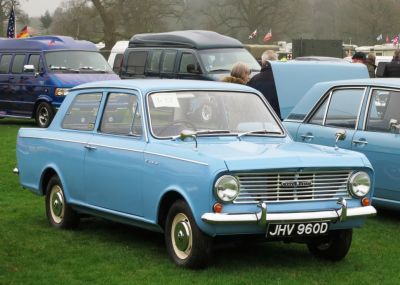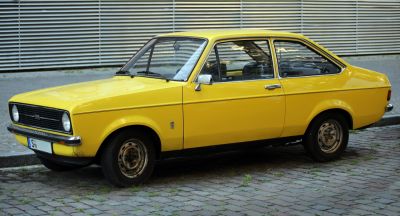 1970 Toyota Corolla II 2-door sedan (E20) Dimensions, Size & Specs
1970 Toyota Corolla II 2-door sedan (E20) Dimensions, Size & SpecsMeasurements of the 1970 Toyota Corolla II 2-door sedan, engineered for optimal performance and comfort
| Dimensions | |
|---|---|
| Length: | 3945 mm155.3 in12.9 ft |
| Width: | 1505 mm59.3 in4.9 ft |
| Height: | 1345-1375 mm53.0-54.1 in4.4-4.5 ft |
| Weight Specifications | |
| Curb Weight: | 730-830 kg1609-1830 lbs |
The Toyota Corolla II 2-door sedan (E20 generation), produced from 1970 to 1974, represents one of the early compact sedans in Toyota's Corolla lineup designed to deliver reliable transportation with efficient use of space. This generation featured a compact but practical form factor, emphasizing economy and maneuverability. The Corolla II E20 sedan measures 3945 millimeters (155.3 inches) in length, making it suitable for urban driving and parking convenience. Its width spans 1505 millimeters (59.3 inches), contributing to a narrow profile that aids in tight traffic and limited parking conditions typical of the era. The height of the car ranges from 1345 to 1375 millimeters (52.9 to 54.1 inches), giving it a low and aerodynamic stance while maintaining enough cabin space for comfort. Curb weight varies between 730 to 830 kilograms (1610 to 1830 pounds), reflecting its lightweight construction that supports fuel efficiency and agility. The Corolla II E20's dimensions firmly place it within the compact sedan category, making it an ideal choice during the early 1970s for drivers seeking a dependable, economical vehicle with easy handling characteristics. Overall, the Corolla II 2-door sedan embodies Toyota's commitment to practical design while maximizing interior space within a compact footprint.
Discover the standout features that make the 1970 Toyota Corolla II 2-door sedan a leader in its class
Have a question? Please check our knowledgebase first.
The 1970 Toyota Corolla II 2-door sedan (E20) has a length of 3945 mm (155.3 inches), a width of 1505 mm (59.3 inches), and a height ranging between 1345 mm (52.9 inches) and 1375 mm (54.1 inches). These compact dimensions made it a practical and easy-to-maneuver vehicle, especially suited for urban environments and narrow streets. Its relatively low height also helped reduce aerodynamic drag and offered a lower center of gravity to enhance handling.
The curb weight of the 1970 Toyota Corolla II (E20) 2-door sedan varies between approximately 730 kg (1609 lbs) and 830 kg (1830 lbs). This lightweight construction contributed to better fuel efficiency and nimble handling characteristics, making the car economical and enjoyable to drive. The variation in weight depends on specific trim levels and optional equipment fitted during production.
With a width of 1505 mm (59.3 inches), the 1970 Toyota Corolla II was narrower than most modern compact cars, which generally measure around 1750 mm (68.9 inches) or more. This narrower stance was typical of early 1970s subcompact sedans, facilitating easier parking and maneuvering in tight spaces but offering less interior shoulder room compared to contemporary vehicles.
The Corolla II (E20), standing between 1345 mm (52.9 inches) and 1375 mm (54.1 inches) tall, offered a relatively low roofline that lent the car a sporty profile but limited headroom, particularly for taller passengers. However, its compact size was optimized to accommodate four passengers with reasonable comfort for short to medium trips. Interior space was efficiently used given the vehicle's overall dimensions, though it does not match the spaciousness typical of modern sedans.
Yes, the 1970 Toyota Corolla II 2-door sedan, with a length of 3945 mm (155.3 inches) and width of 1505 mm (59.3 inches), comfortably fits into a standard garage. Typical residential garages have widths of around 2438 mm (96 inches) and lengths of over 4875 mm (192 inches), so the Corolla II’s compact footprint makes it easy to park indoors, leaving room for pedestrian access and storage around the vehicle.
The Corolla II (E20) introduced in 1970 was a slightly larger and more refined evolution compared to the original Corolla generation (E10 series). The length of 3945 mm (155.3 inches) was marginally longer, providing increased passenger space and trunk capacity. The width and height were similar but offered slight improvements in styling and interior comfort. Additionally, the E20 benefited from design enhancements such as better chassis rigidity and updated suspension, improving driving dynamics compared to its predecessor.
The 1970 Toyota Corolla II's compact dimensions put it right alongside other contemporary subcompact sedans such as the Datsun Cherry and Honda N600. Its length of 3945 mm (155.3 inches) and width of 1505 mm (59.3 inches) were competitive, with many competitors featuring similar or slightly larger footprints. The Corolla II’s relatively lightweight construction and efficient packaging made it stand out for offering good space utilization in a small package, an advantage in urban settings where compactness was critical.
Weighing between 730 kg (1609 lbs) and 830 kg (1830 lbs), the 1970 Toyota Corolla II's lightweight design contributed significantly to its fuel efficiency and agile handling. Lower vehicle weight meant the engine did not have to work as hard, translating into better fuel economy and reduced emissions. Additionally, the lighter curb weight improved acceleration responsiveness and braking performance, especially important for everyday city driving and maneuvering in tight spaces.
The Corolla II (E20) generation, produced from 1970 to 1974, saw several updates from its predecessor, focusing on modernizing the styling and improving reliability. The 2-door sedan was designed with more aerodynamic lines and a more spacious interior. Mechanically, the E20 had enhanced suspension systems for better ride comfort, upgraded braking components, and more efficient engine options. These changes made it a popular choice in its class for buyers looking for a reliable, economical, and practical subcompact.
Compared to modern compact cars, the 1970 Toyota Corolla II is significantly smaller in every dimension: length (3945 mm/155.3 in), width (1505 mm/59.3 in), and height (1345–1375 mm / 52.9–54.1 in). Today’s compacts are generally wider and longer, providing substantially more interior passenger and cargo space. However, the Corolla II’s small footprint makes it extremely easy to park and maneuver, advantages that remain relevant in crowded urban areas. While modern vehicles offer more advanced technology and comfort, the Corolla II’s simplicity and lightness contribute to its enduring appeal as a practical small sedan of its time.
Discover similar sized cars.

| Production: | 1963-1966 |
|---|---|
| Model Year: | 1963 |
| Length: | 3940 mm155.1 in |
| Width: | 1509 mm59.4 in |
| Height: | 1354 mm53.3 in |

| Production: | 1973-1980 |
|---|---|
| Model Year: | 1974 |
| Length: | 3977 mm156.6 in |
| Width: | 1570 mm61.8 in |
| Height: | 1406 mm55.4 in |
